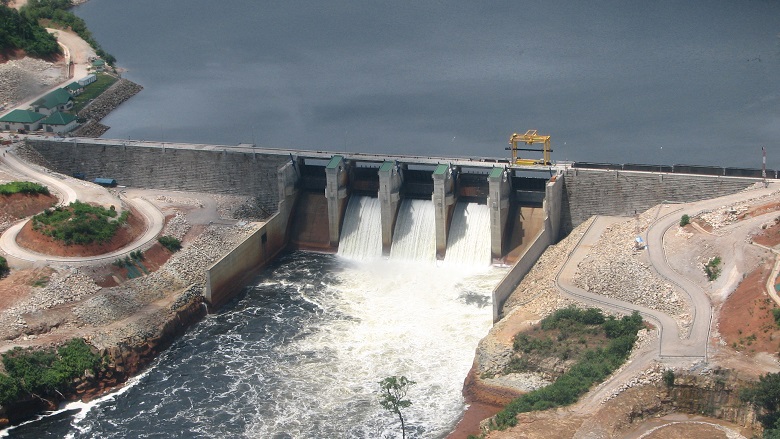A significant shift is taking place in Southeast Asia’s renewable energy sector, driven by a $128 million deal that sees Gulf Energy Development, led by Thai billionaire Sarath Ratanavadi, acquiring a major Lao hydro power project. This strategic move underscores the region’s growing focus on sustainable energy and highlights Gulf Energy’s ambition to become a dominant player in renewable power generation across Asia. The acquisition also emphasizes the rising importance of hydropower in Laos, a country already known as the “battery of Southeast Asia.”
Why the Lao Hydro Power Project Matters
The Lao hydro power project that Gulf Energy has taken over is a vital component of the country’s renewable energy infrastructure. Laos has positioned itself as a regional power exporter, primarily leveraging its abundant water resources to generate electricity. The country’s strategy focuses on building numerous hydroelectric dams to sell electricity to neighboring nations such as Thailand, Vietnam, and Cambodia.
By acquiring the Lao hydro power project, Gulf Energy is securing access to a reliable renewable energy source that aligns with regional decarbonization efforts. Hydropower offers consistent baseload electricity, a crucial factor as Southeast Asia balances economic growth with environmental sustainability. For Gulf Energy, this investment not only strengthens its power portfolio but also positions it to benefit from growing cross-border energy trade.
Sarath Ratanavadi, Gulf’s CEO, emphasized the importance of renewable energy investments in maintaining long-term growth. With global momentum shifting toward clean energy, securing assets like the Lao hydro power project is both a financial and strategic win. This acquisition aligns with Thailand’s energy transition policies, which aim to increase renewable energy’s share in the national energy mix.
Strategic Impact of Gulf Energy’s Expansion
The $128 million deal represents more than just an acquisition; it signifies Gulf Energy’s broader ambition to lead in renewable energy. The company, historically known for its natural gas and conventional power plants, has been aggressively diversifying into renewable projects, including solar, wind, and hydropower. Adding the Lao hydro power project to its portfolio highlights a calculated shift toward low-carbon solutions.
Gulf Energy’s strategic approach is based on two main drivers. First, renewable projects, especially hydropower, provide long-term stable cash flows backed by government power purchase agreements. This financial stability is essential for listed companies like Gulf that prioritize steady investor returns. Second, the acquisition strengthens Gulf’s regional presence, giving it a foothold in Laos, a country whose energy sector is integral to Southeast Asia’s power grid connectivity.
Moreover, Laos has been actively pursuing foreign investment to fund its hydro power development. Gulf’s entry could spark further interest from regional energy players, potentially leading to more collaborations or co-financing opportunities in renewable energy infrastructure. For Laos, this deal is another step toward realizing its ambition of being a top renewable energy exporter, while for Gulf, it marks a critical milestone in its regional growth journey.
Renewable Energy’s Growing Role in Southeast Asia
The acquisition of the Lao hydro power project reflects a larger trend in Southeast Asia. The region is experiencing a surge in renewable energy projects, spurred by government policies, foreign investment, and growing awareness of climate change. Hydropower, solar, and wind are gaining momentum as key contributors to national grids.
Laos, in particular, has emerged as a regional leader in renewable energy exports. Its abundant river systems, including the Mekong and its tributaries, provide natural advantages for hydropower generation. The Lao hydro power project acquired by Gulf Energy is part of this broader ecosystem, helping the country meet both domestic and export energy demands.
Thailand, where Gulf Energy is headquartered, is also advancing its renewable energy agenda. The government has set ambitious targets to increase clean energy’s share in electricity generation, with hydropower imports playing a key role. Gulf’s acquisition aligns perfectly with Thailand’s energy goals, ensuring long-term power security and environmental sustainability.
Additionally, international institutions are increasingly supporting renewable projects in Southeast Asia. The region has become a hotspot for green financing, with investors showing strong interest in companies focusing on clean energy. Gulf Energy’s move to secure the Lao hydro power project positions it to benefit from both market demand and favorable financing conditions.
Looking Ahead: Opportunities and Challenges
While the acquisition of the Lao hydro power project represents a strategic win, Gulf Energy faces several challenges in executing its expansion plans. One primary concern is environmental and social impact. Hydropower projects, while renewable, can affect ecosystems and local communities if not managed responsibly. Gulf Energy will need to ensure strict adherence to environmental standards and community engagement practices to maintain a positive reputation.
Another challenge is geopolitical. Cross-border energy trade requires stable diplomatic relations and regulatory alignment between Laos and its neighboring countries. While relations have generally been positive, energy trade remains sensitive to political shifts. Gulf Energy must remain adaptable to any changes in regional energy policies.
However, the opportunities outweigh the challenges. The Lao hydro power project is expected to provide steady electricity output, supporting both domestic and export markets. Gulf Energy’s expertise in power infrastructure and project management gives it a competitive edge in operating and optimizing such projects. As renewable energy demand continues to rise, Gulf is well-positioned to capitalize on the growing market, leveraging its expanding portfolio to attract more investors and strategic partners.
For Southeast Asia as a whole, this acquisition sends a strong signal: renewable energy is no longer an optional diversification but a core business strategy for energy companies. The Lao hydro power project will likely serve as a model for future cross-border renewable energy deals, helping the region transition to a low-carbon future while supporting economic growth.
Read More






 Saturday, 28-02-26
Saturday, 28-02-26







